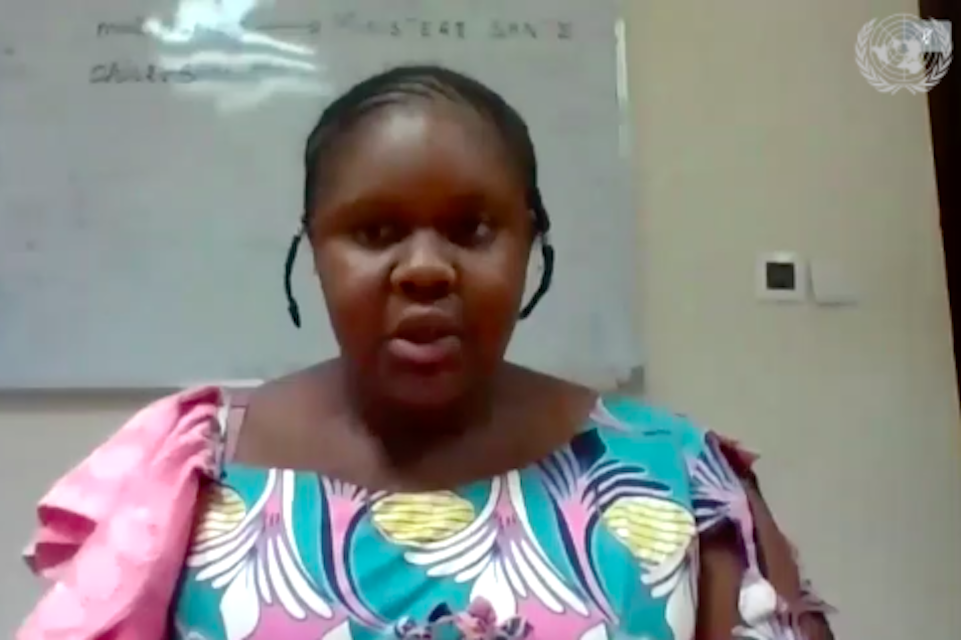Protecting children in conflict and ensuring access to education
Statement by Ambassador James Roscoe, UK Acting Deputy Permanent Representative to the UN, at the Security Council Open Debate on Children and Armed Conflict.

Thank you, Mr President, for hosting this year’s annual debate. And our thanks also to Special Representative Gamba and Executive Director Fore. Thank you in particular to Mariam for your very powerful briefing.
The UK is committed to protecting children in conflict. We remain one of the largest donors to the Office of the Special Representative and support its efforts to carry out its mandate. As an active member of the Security Council Working Group on Children and Armed Conflict, we work to ensure the Council provides pragmatic recommendations to parties to conflict, to address child rights concerns and encourage systematic follow-up to its conclusions. We call on parties to conflict to adopt and implement action plans to end and prevent grave violations against children and urge governments to hold perpetrators to account.
Since their establishment 15 years ago, the Working Group and the UN’s Monitoring and Reporting Mechanism have achieved great successes, including by contributing to the release of more than 155,000 children associated with parties to conflict. However, 15 years later, it is clear that more work is needed to ensure that these mechanisms remain transparent and credible vehicles for accountability. The Secretary-General’s 2020 Annual Report on Children and Armed Conflict makes for somber reading. The vast numbers of violations committed against children is abhorrent, and must serve as a rallying call to the international community. We must do more.
The parameters for this year’s report means COVID-19 is not covered. But as we heard from Ms Fore, its impacts will have a devastating effect on children in conflict. Ensuring child protection actors are able to continue to monitor, report and respond to grave violations during this pandemic is paramount. The United Kingdom reiterates its strong support for the Secretary-General’s call for a global ceasefire and urges Member States to collectively enable humanitarian access. The Secretary-General’s annual report and annexes provide a valuable tool for strengthening compliance with international law, promoting accountability and influencing improvements in the behaviour of parties to conflict.
The strength of this tool, however, depends on a standardised approach to listing and delisting based on MRM collected data and consistent application of the criteria set out in the SG’s 2010 Annual Report. The United Kingdom calls on the UN to review its approach and work with Security Council members to reinforce our global commitment to supporting children in armed conflict. We will call on Council colleagues to make greater use of the Working Group’s tools and mechanisms to promote the protection of children and ensure there is sufficient child protection capacity in UN peace operations and political missions.
The UK supports the emphasis on education at this Open Debate. Access to safe, quality education for children affected by armed conflict has an important role in reintegration, as well as providing a route to a better future. Schools can often protect these highly vulnerable children. Education also contributes to a safer and more prosperous world and reduces conflict and increases stability.
We are thus concerned by the Annual Report’s findings that in 2019, state actors were responsible for more than half of all attacks on schools. In 2018, the UK endorsed the Safe Schools Declaration, committing to reduce the impact of conflict on education. We strongly support the SG’s call for other states to sign up to this declaration, to strengthen the protection of education from attack because, as Mariam reminded us, children have a right to their childhoods and to an education free from conflict.
Mass school closures across the world as a result of COVID-19 have the biggest impact on girls’ lives. Globally, girls were already more likely than boys never to receive any type of education, and their access is even lower in times of crisis and emergency. They are least likely to return to school following a crisis, facing increased risks of child marriage, teenage pregnancy, gender-based violence, sexual exploitation and the loss of vital sexual and reproductive health services. In this regard, we would like to conclude with a call on the UN to continue to improve the collection of gender disaggregated data on grave violations in order to strengthen its gender sensitive response to child protection.
Mr President, we need to do better because as Ms Fore says, when we fail children, we fail the future. And so we owe it to Mariam, the children of Mali and children across the world to redouble our efforts.
Thank you, Mr. President.